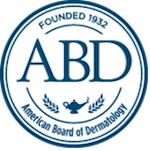Do I need a referral to see a dermatologist in NYC?
In most cases, you do not need a referral to see a dermatologist at Downtown Dermatology. However, we recommend checking with your insurance provider, as some plans may require a referral from your primary care physician for coverage.
How often should I have a full body skin exam?
For most adults, we recommend an annual full body skin exam. However, if you have a history of skin cancer, numerous moles, significant sun exposure, or a family history of melanoma, you may need more frequent screenings. Our doctors will provide personalized recommendations based on your individual risk factors.
Can you help with chronic skin conditions like eczema or psoriasis?
Yes, managing chronic skin conditions is a core part of our practice. We understand that conditions like eczema and psoriasis require ongoing care and personalized treatment plans. We offer the latest therapies including topical treatments, phototherapy, and biologic medications when appropriate.
Do you accept insurance?
Yes, we accept most major insurance plans. We recommend contacting our office or checking with your insurance provider to confirm coverage before your appointment. Our staff is happy to help verify your benefits.
Do you offer services in Spanish?
Se habla Español. We're proud to serve our diverse NYC community and can provide consultations and care in Spanish.
Can I see the same doctor for both medical and cosmetic concerns?
Yes! Our doctors are experienced in both medical and cosmetic dermatology, allowing for comprehensive, coordinated care. We can address multiple concerns during a single visit when appropriate.
















